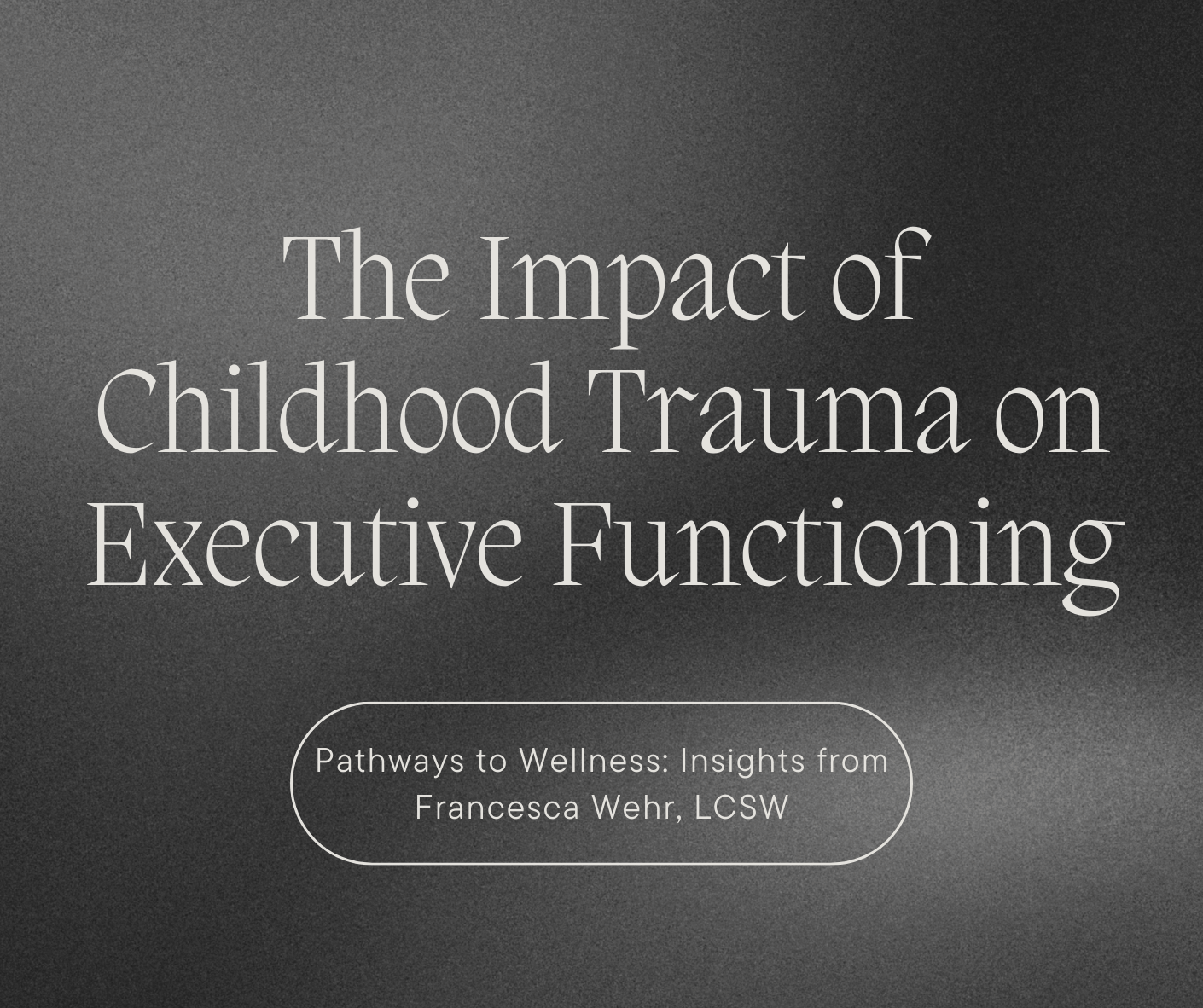
The Impact of Childhood Trauma on Executive Functioning
Childhood trauma can have long-lasting effects on executive functioning, impairing key cognitive processes like emotional regulation, planning, and problem-solving. These deficits stem from changes in brain development caused by early-life stress, making it difficult for trauma survivors to manage daily tasks, control impulses, and stay organized. However, with the right interventions, such as trauma-focused therapy, mindfulness practices, and executive functioning coaching, it’s possible to rebuild these skills and improve cognitive performance. This guide explores how trauma impacts executive functioning and offers strategies for healing and growth.

Understanding Grief: The "Ball in a Box" Analogy and Its Impact on Mental Health
Grief is an inevitable part of life, but understanding it can make the healing process more manageable. The "Ball in a Box" analogy provides a simple yet powerful explanation of how grief evolves over time. In this blog, we dive deep into the emotional and mental health impacts of grief, offering actionable coping strategies to help you navigate loss. Whether you're seeking personal healing or supporting a loved one through grief, this guide will provide the insights and tools you need to move forward with compassion and resilience.
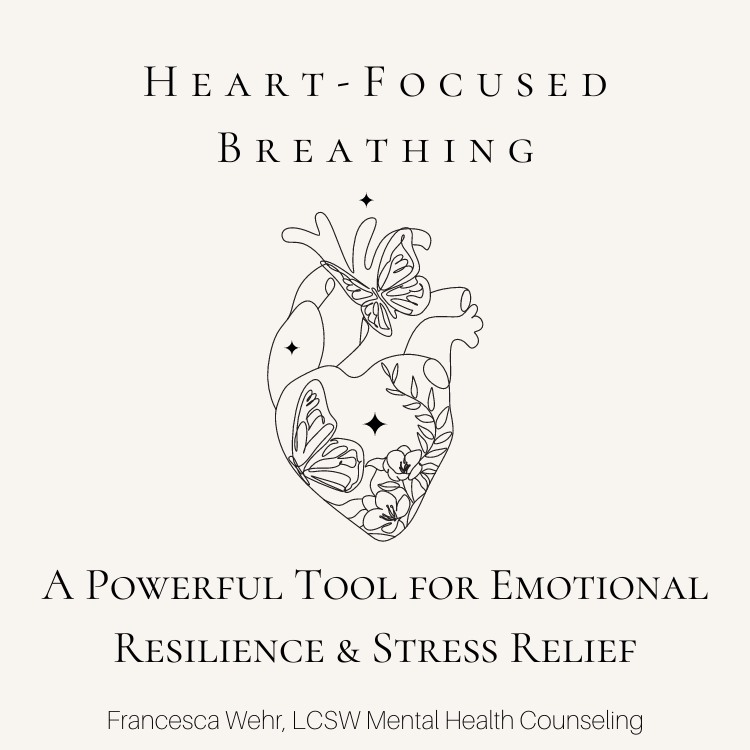
Heart-Focused Breathing: A Powerful Tool for Emotional Resilience & Stress Relief
Heart-focused breathing is a transformative practice that helps regulate stress and improve emotional balance by syncing your breathing with your heart’s rhythm. By focusing on positive emotions like gratitude and love, this simple technique can reduce anxiety, enhance mental clarity, and boost emotional resilience. Discover how to integrate heart-focused breathing into your daily routine and experience lasting benefits for both body and mind.

Cultivating Mindfulness, Gratitude, & Knowing When to Seek Professional Support: A Holistic Approach to Holiday Mental Wellness
Mindfulness and gratitude can transform your holiday experience, but it’s also important to know when to seek professional support. This final post in the series offers a holistic approach to maintaining mental wellness throughout the holidays.
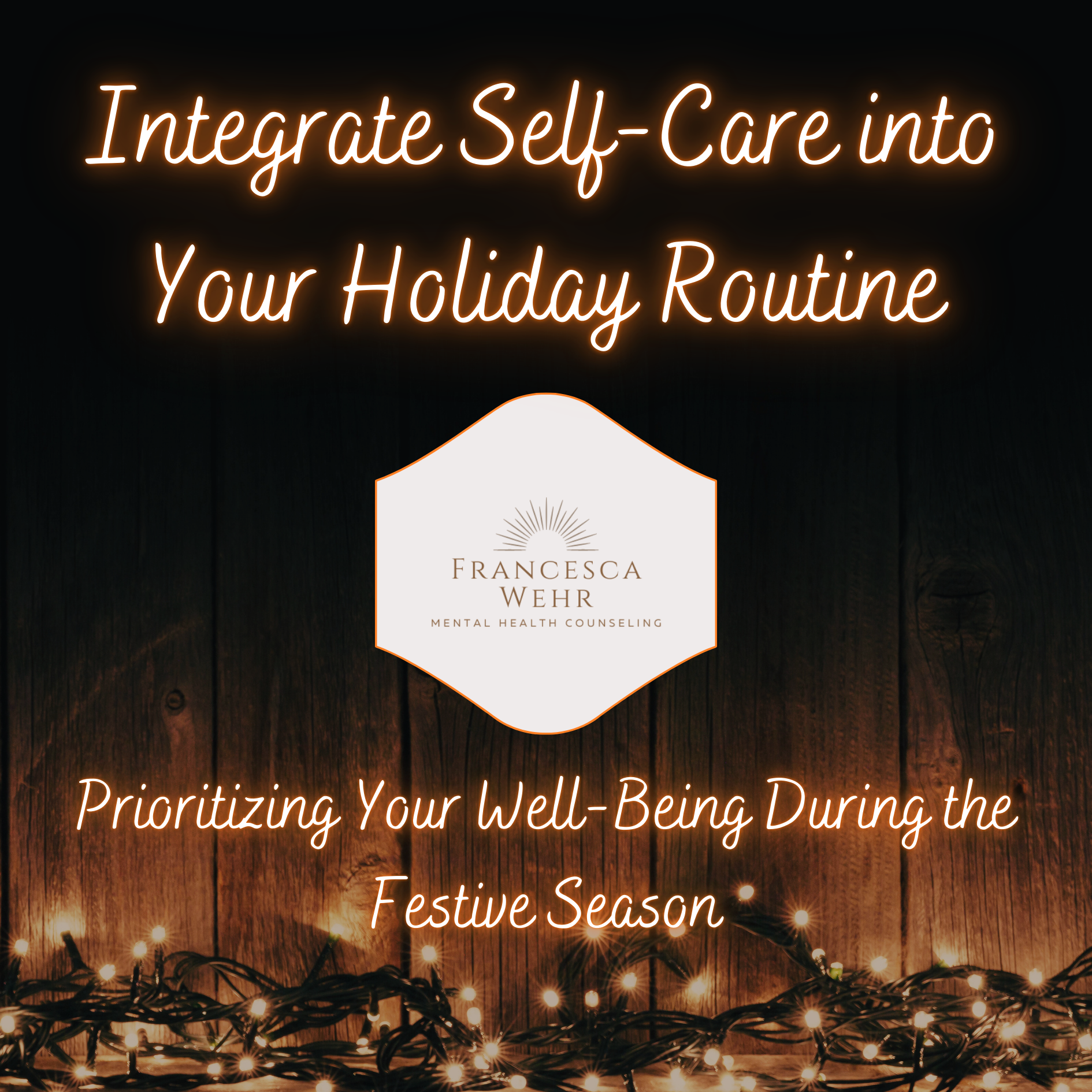
Integrate Self-Care into Your Holiday Routine: Prioritizing Your Well-Being During the Festive Season
Self-care often gets sidelined during the holidays, but it’s crucial for maintaining mental well-being. Discover simple yet effective self-care practices to keep you grounded and rejuvenated throughout the festive season.
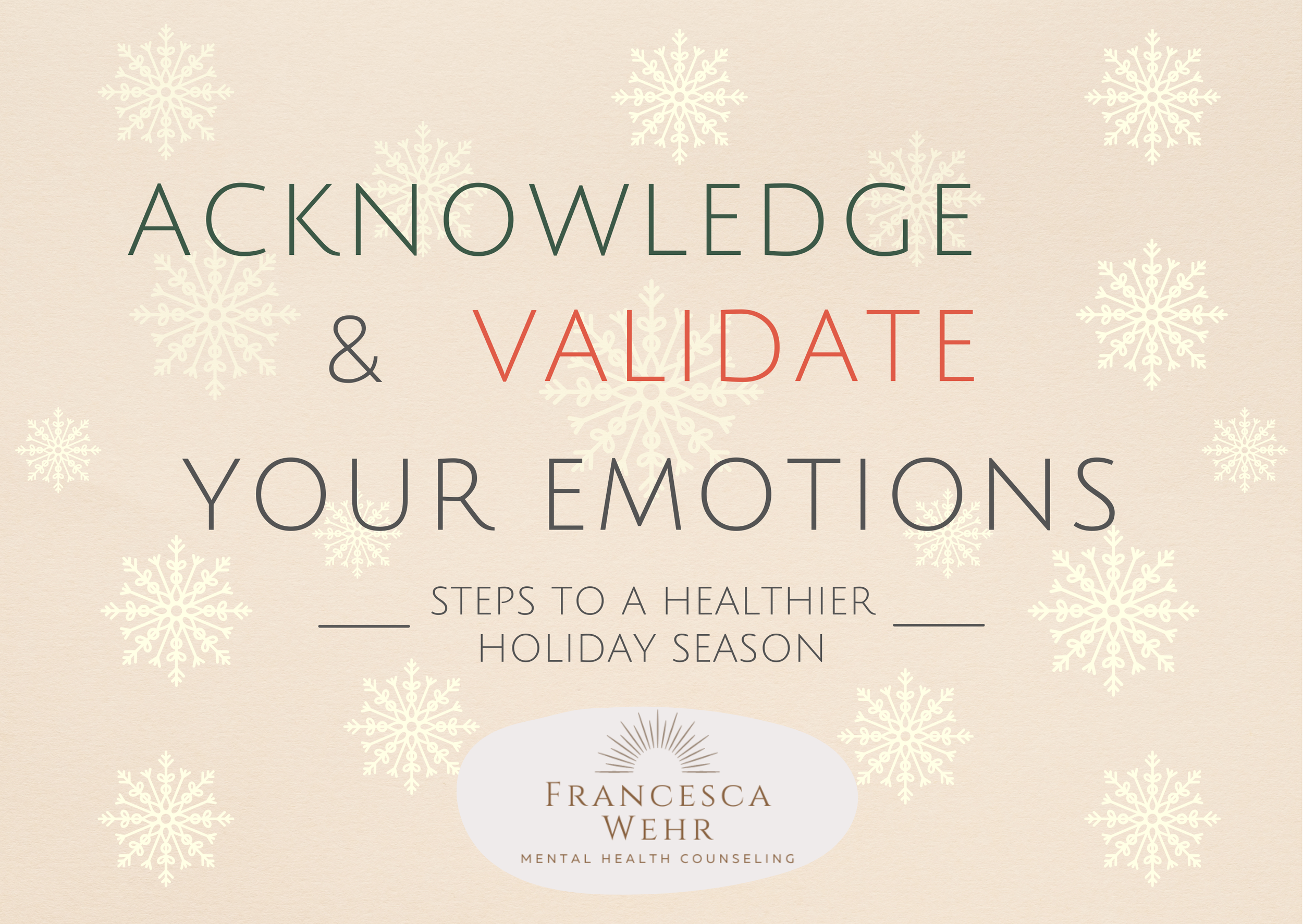
Acknowledge & Validate Your Emotions: Steps to a Healthier Holiday Season
The holidays can evoke a wide range of emotions. Instead of pushing them aside, learn how to acknowledge and validate your feelings. This post offers insights on embracing your emotional landscape with self-compassion.

Unraveling the Tangle: Understanding Emotional Dysregulation and Its Origins
Emotional dysregulation can make everyday life challenging, leading to intense, sometimes overwhelming reactions. This post delves into the causes of emotional dysregulation, from brain science to past traumas, and offers actionable strategies to help you manage your emotions more effectively. Discover how mindfulness, therapy, and self-care can pave the way to greater emotional balance.

The Connection Between Mental Health and Physical Health: A Holistic Approach to Well-Being
The connection between mental health and physical health is often overlooked, yet it is crucial for overall well-being. A holistic approach to health acknowledges the intricate relationship between the mind and the body, recognizing that both aspects must be considered for optimal health. Pathways to Wellness: Insights from Francesca Wehr, LCSW Mental Health Counseling, and Connect H&W explores this connection and provides strategies for promoting a balanced, holistic approach to well-being. This collaboration highlights the benefits of integrating physical therapy, somatic breath work, and EMDR for comprehensive healing.

Navigating Your Inner Landscape: Understanding and Enhancing Self-Esteem
In the latest edition of "Pathways to Wellness," Francesca Wehr, LCSW, offers a profound look into the dual pillars of self-esteem and self-worth, revealing how these crucial elements of psychological health shape our perceptions and interactions. This insightful exploration highlights the fluid nature of self-esteem, influenced by our successes and the way we perceive others' views of us, and contrasts it with the enduring nature of self-worth—a deep-seated belief in our intrinsic value. Whether you're looking to build resilience, enhance personal development, or foster a healthier, more balanced self-image, Francesca's expert guidance provides the tools and understanding needed to cultivate a stronger sense of self in an ever-changing world. Join us to uncover the techniques and strategies essential for nurturing your self-esteem and self-worth on your path to wellness.
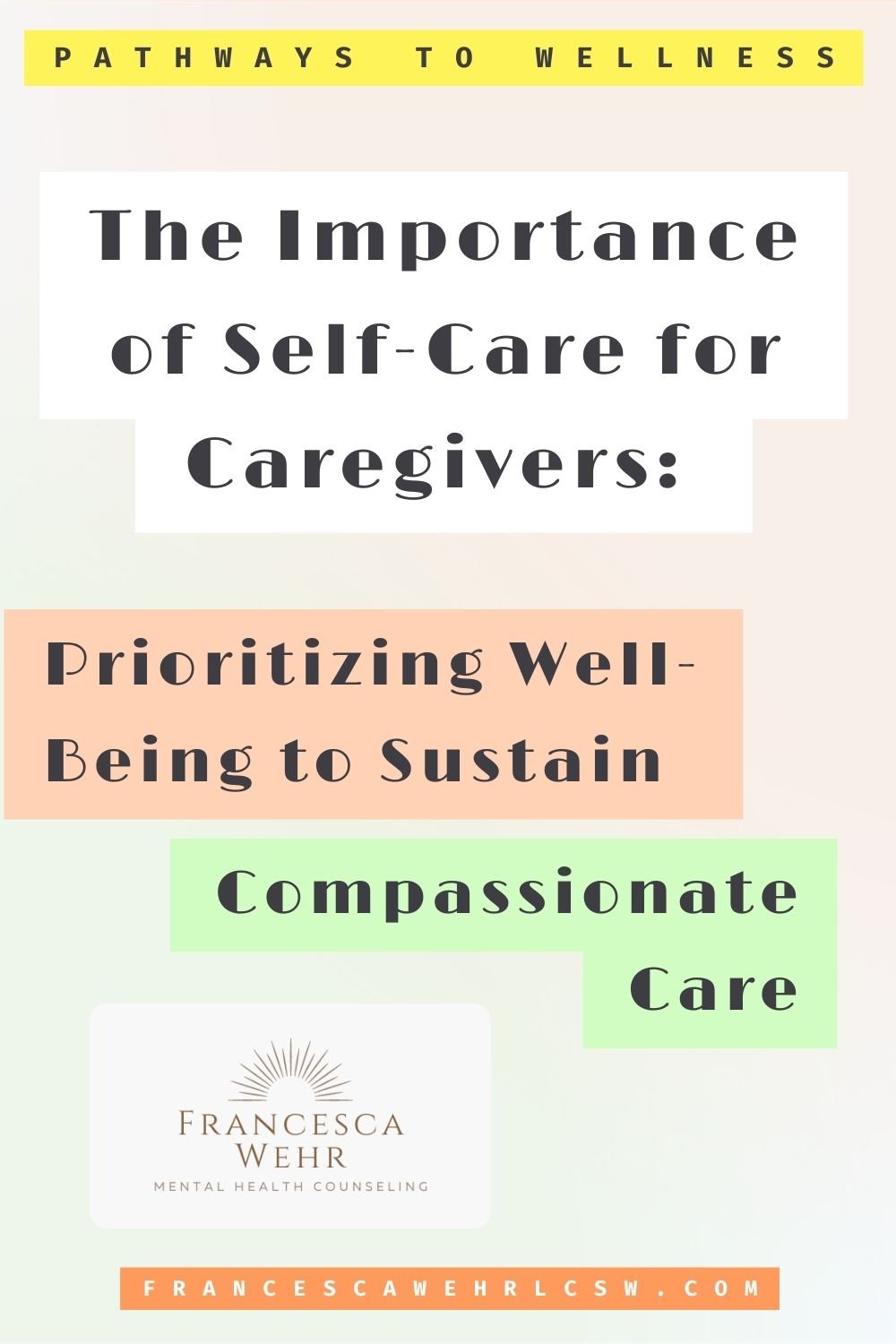
The Importance of Self-Care for Caregivers: Prioritizing Well-Being to Sustain Compassionate Care
Caregivers, whether professional or personal, play a vital role in supporting the well-being of others. However, the demanding nature of caregiving can take a toll on one's physical, emotional, and mental health. Self-care is essential for caregivers to maintain their own well-being and continue providing compassionate care for others. Pathways to Wellness: Insights from Francesca Wehr, LCSW Mental Health Counseling discusses the importance of self-care for caregivers and provides practical tips to incorporate self-care into daily routines.

From Survival to Healing: Navigating Post-Traumatic Stress and Finding Resolution
The last part of the “From Surviving to Healing” Trauma series, this blog post navigates the complex journey from survival to healing. This requires more than just revisiting traumatic memories; it demands a reconnection to the present and a reclamation of one's sense of safety and self. For many trauma survivors, the past feels unsettlingly close, a series of vivid flashbacks and heightened states that blur the lines between then and now. The challenge is not merely to recount the trauma but to feel, deep in one's bones, that it has passed and that safety has been restored.
Healing involves a delicate balance of acknowledging the trauma while firmly rooting oneself in the present, employing strategies to calm the nervous system, and recognizing triggers without being overwhelmed by them. Techniques like mindfulness, somatic therapies, and EMDR offer pathways to process traumatic memories in a way that diminishes their power, allowing survivors to redefine their narratives on their own terms. This transformative process paves the way for a life where trauma informs but does not control, where past pain leads to present resilience, and where each survivor can truly say, "I am here, I am safe, and I am moving forward."

From Survival to Healing: Understanding Trauma-Related Fragmentation and Dissociation
FROM SURVIVING TO HEALING: In the intricate landscape of trauma recovery, the phenomena of fragmentation and dissociation stand out as critical survival mechanisms employed by individuals facing overwhelming threats, particularly in childhood. These adaptive responses, deeply rooted in our biological and psychological makeup, serve to protect the psyche by compartmentalizing traumatic experiences, allowing for survival amidst adversity. However, these same mechanisms that once ensured survival can later obstruct the path to holistic healing, creating a complex interplay of internal parts that may feel disconnected or at odds with one another. Understanding these facets of the trauma response is pivotal in the journey from merely surviving to truly healing, offering a beacon of hope for those navigating the challenging path to integration and wholeness.

From Survival to Healing: Trauma, Attachment, and the Path to Emotional Resilience
In our latest addition to our “From Survival to Healing” trauma series, "Understanding Trauma, Attachment and Emotional Resilience," by Francesca Wehr, LCSW, delves into the intricate relationship between our earliest attachments and their lasting impact on our adult lives. Uncover the subtle signs of traumatic attachment and how they manifest in our relationships, often without our conscious awareness. Francesca provides enlightening insights into recognizing these patterns and embarking on a journey toward healing and emotional resilience. Join us on the Pathways to Wellness Blog for expert guidance on transforming traumatic attachments into sources of strength and healthier connections.

From Survival to Healing: Decoding the Language of Trauma Coping Strategies
Dive into our enlightening blog post, "From Survival to Healing: Decoding the Language of Trauma Coping Strategies," where we unravel the complex ways individuals adapt to past traumas. This insightful piece sheds light on the diverse survival mechanisms that emerge from traumatic experiences and how they shape our interactions and responses in adult life. Discover the transformative power of understanding and redefining these coping strategies, moving from mere survival to a path of meaningful healing and growth. Join us in exploring the journey from coping to thriving, as we decode the language of trauma and its impact on our lives.

Embracing Vulnerability: A Look at Brené Brown's Shame Resilience Theory
Shame can be an intensely painful experience, often linked to feelings of worthlessness and fear of disconnection. Psychologist and researcher Brené Brown's Shame Resilience Theory offers a lens through which we can better understand and manage shame. Pathways to Wellness: Insights from Francesca Wehr, LCSW Mental Health Counseling delves into the fundamentals of this transformative theory and how we can apply it in our lives.

From Survival to Healing: Insights into Our Brain and Body's Response
This blog post takes you on a personal journey through the landscape of trauma, focusing on the deep-seated responses our bodies and minds have to traumatic events. It sheds light on the limbic system—the emotional heart of our brain—and how it's hardwired to protect us, often leaving us with trauma that feels ever-present. We explore the idea of 'triggers,' those unexpected moments that suddenly transport us back to our traumatic experiences, and why they can be so powerful.
But this isn't just a scientific exploration; it's an invitation to see your own trauma responses in a new light. We delve into the idea that the ways we've reacted to trauma—perhaps with anxiety, avoidance, or hyper-alertness—aren't signs of weakness but are actually testament to our incredible ability to survive. Through personal reflection, the post encourages you to consider how these responses have served you, offering a compassionate perspective on your journey toward healing.
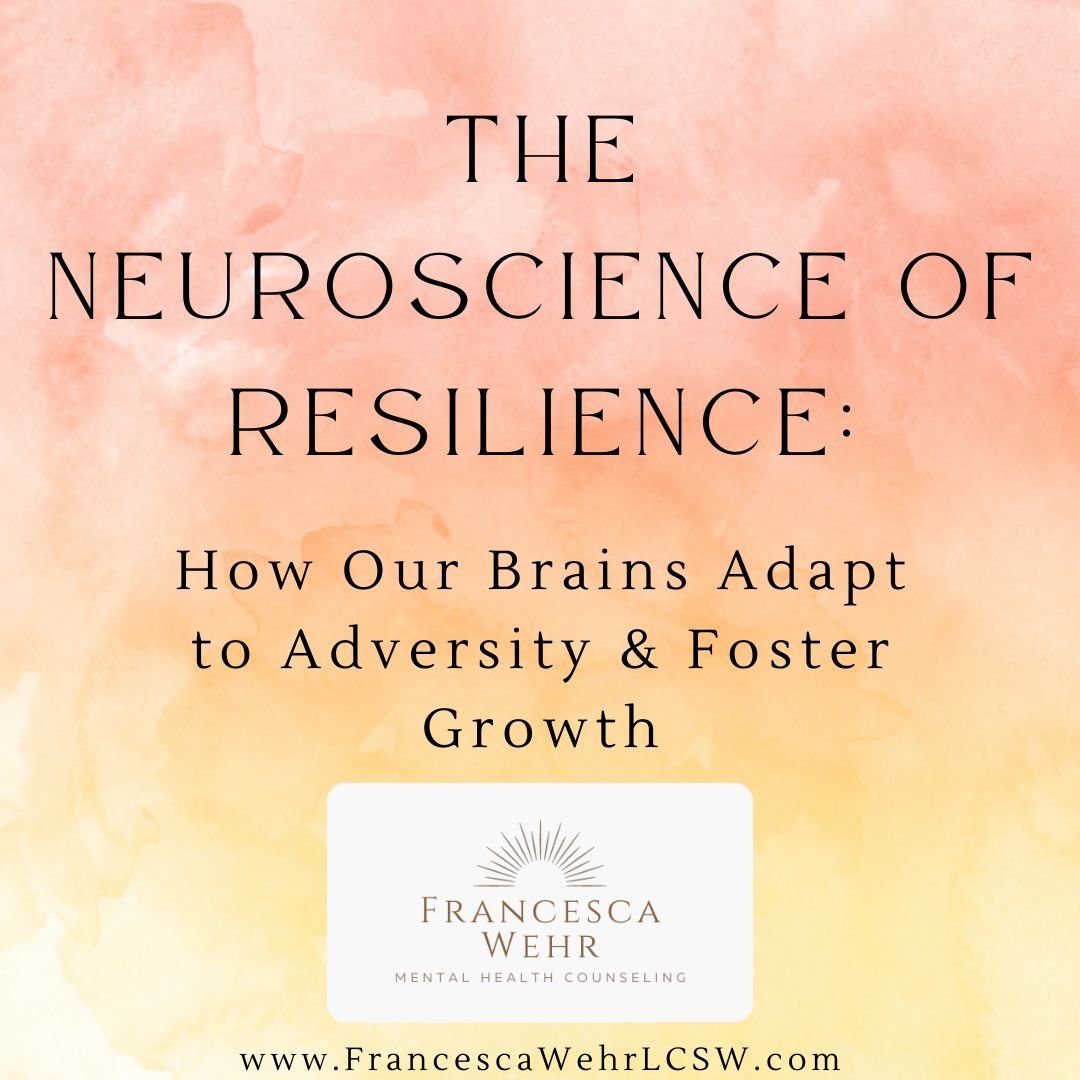
The Neuroscience of Resilience: How Our Brains Adapt to Adversity and Foster Growth
Resilience is the ability to bounce back from adversity, cope with challenges, and adapt to change. The science behind resilience reveals how our brains respond to and learn from difficult experiences, allowing us to grow and thrive. Pathways to Wellness: Insights from Francesca Wehr, LCSW Mental Health Counseling delves into the neuroscience of resilience, explores how our brains adapt to adversity, and shares research-backed strategies for building resilience and fostering personal growth.
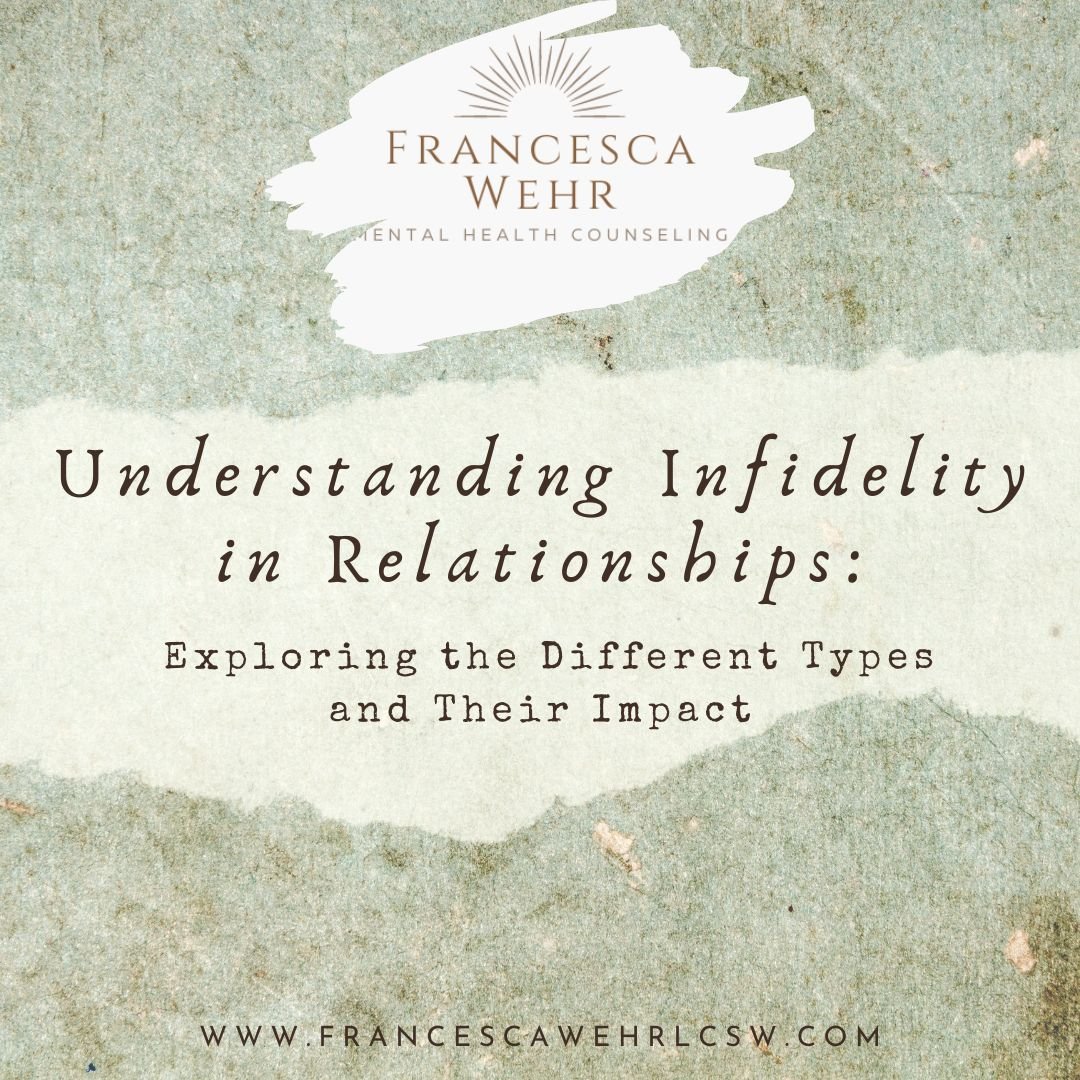
Understanding Infidelity in Relationships: Exploring the Different Types and Their Impact
Infidelity, or the act of being unfaithful in a committed relationship, is a complex and emotionally charged issue. It can manifest in various forms, each with its unique challenges and consequences. Pathways to Wellness: Insights from Francesca Wehr, LCSW Mental Health Counseling explores the different types of infidelity – physical, emotional, cyber, object, and financial – and provides examples of each to help deepen our understanding of this sensitive topic.
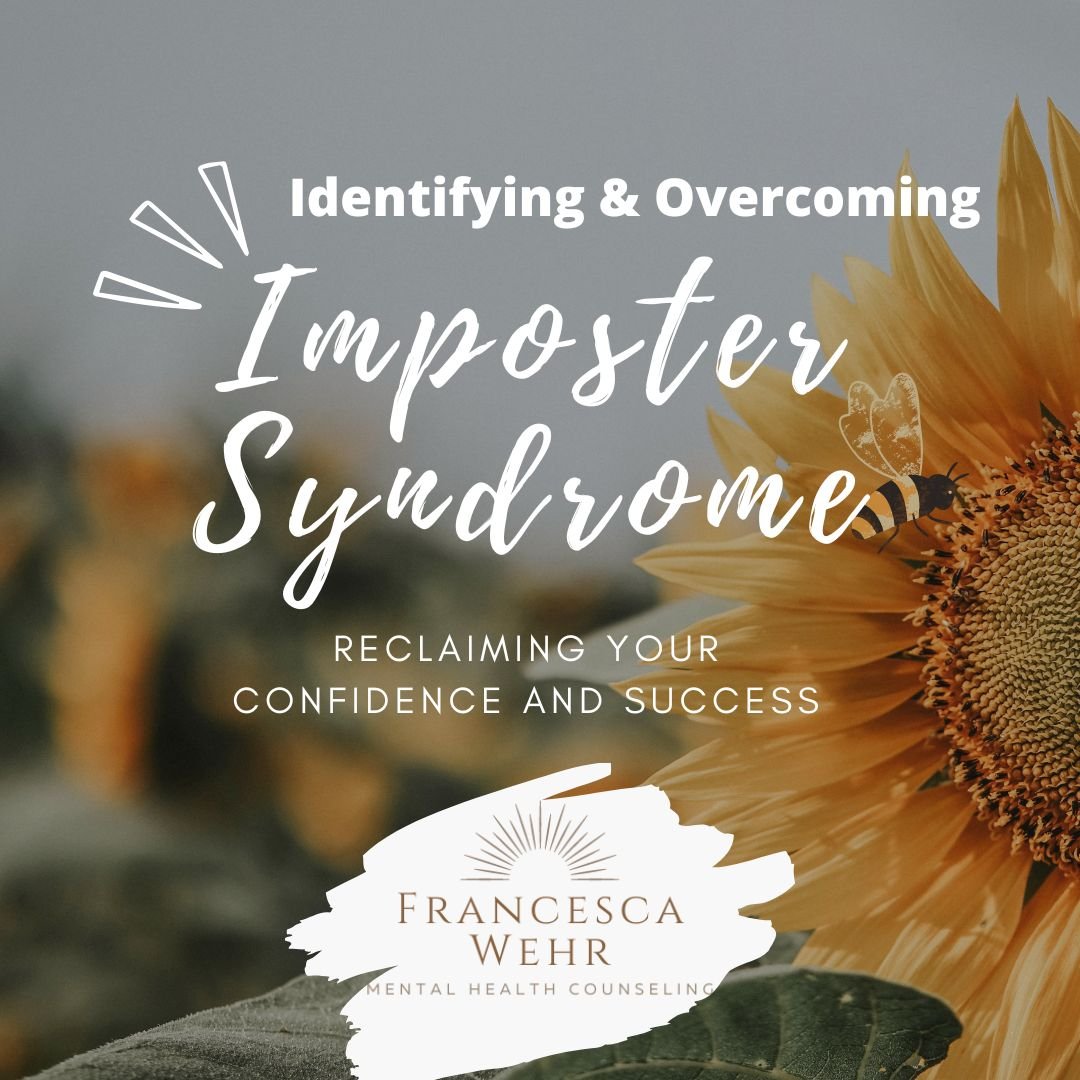
Identifying and Overcoming Imposter Syndrome: Reclaiming Your Confidence and Success
Imposter Syndrome is a psychological phenomenon where individuals doubt their accomplishments and fear being exposed as a "fraud." Despite evidence of their success, those with Imposter Syndrome struggle to internalize their achievements and often attribute them to luck or external factors. Pathways to Wellness: Insights from Francesca Wehr, LCSW Mental Health Counseling discusses how to identify Imposter Syndrome and provides practical tips for overcoming this self-limiting mindset.
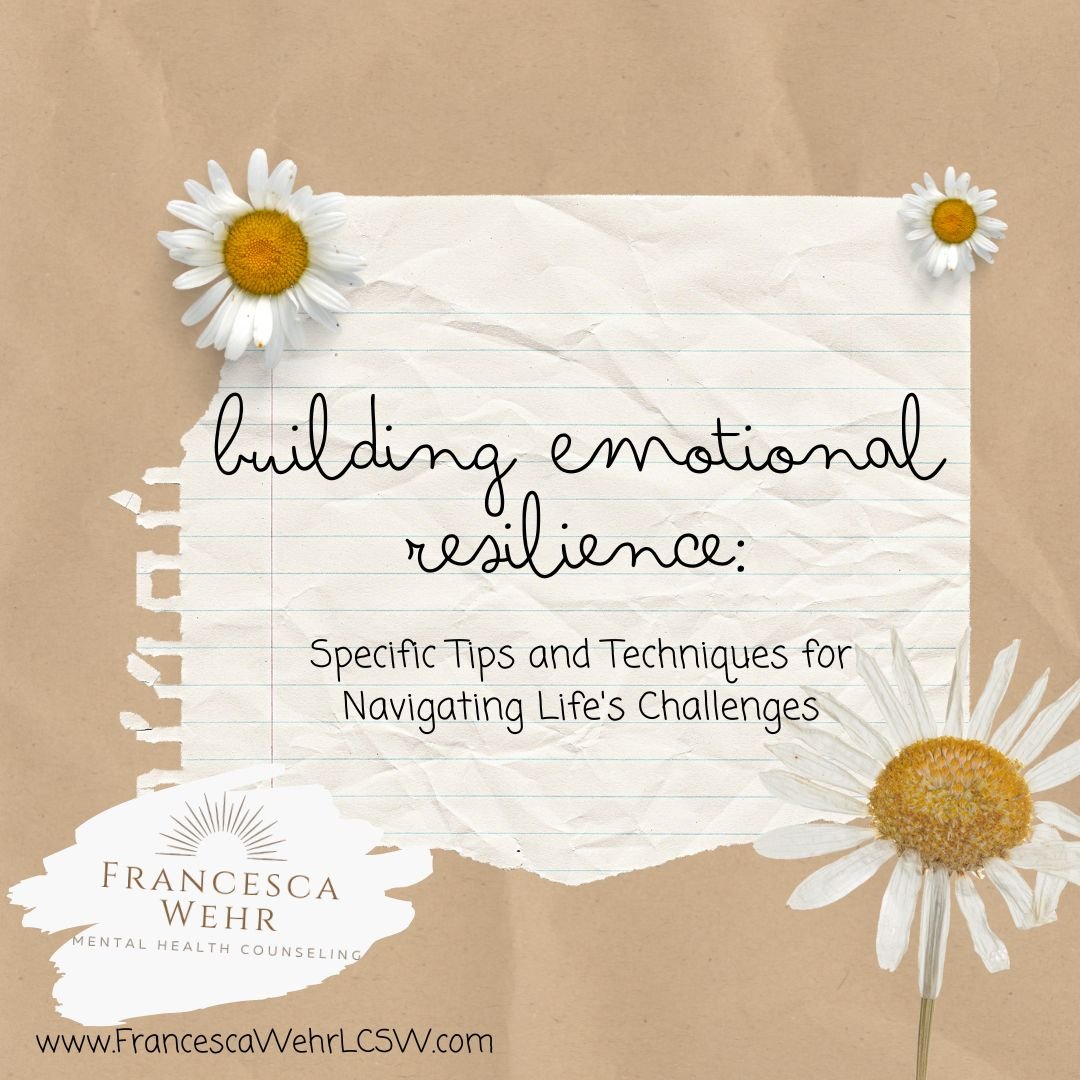
Building Emotional Resilience: Specific Tips and Techniques for Navigating Life's Challenges
Emotional resilience is essential for maintaining mental and emotional well-being in our fast-paced world. Developing this skill helps you adapt and recover from stress, adversity, or challenging situations. Pathways to Wellness: Insights from Francesca Wehr, LCSW Mental Health Counseling provides specific tips and techniques for building emotional resilience.




